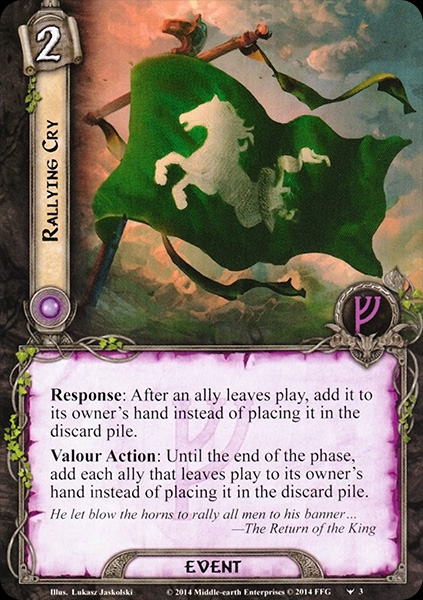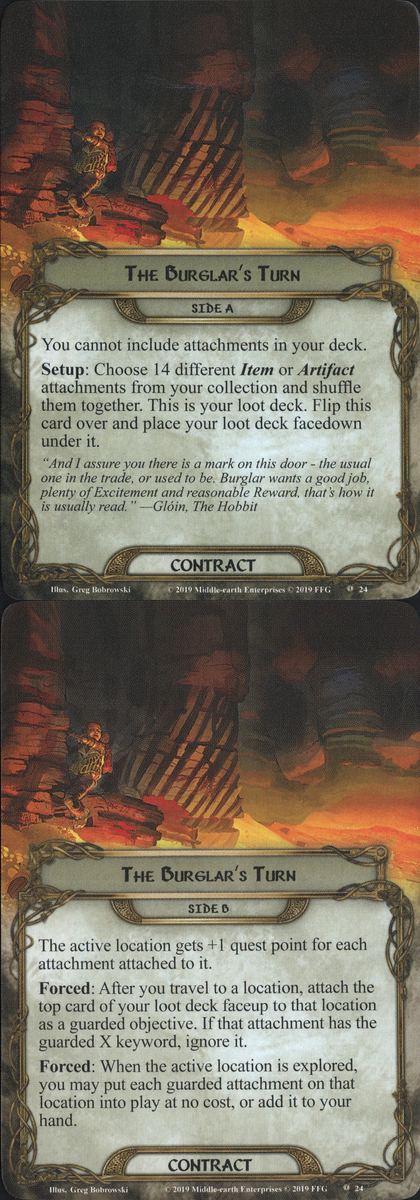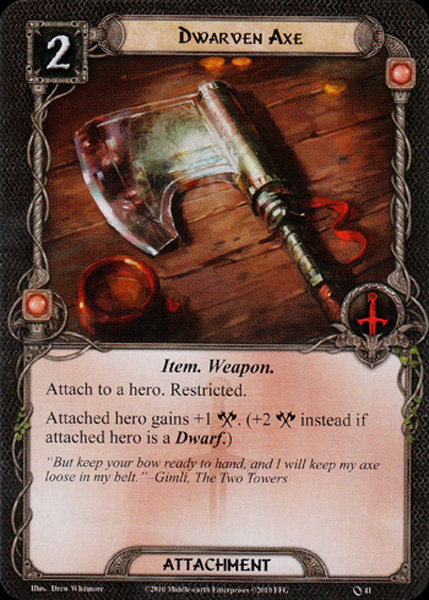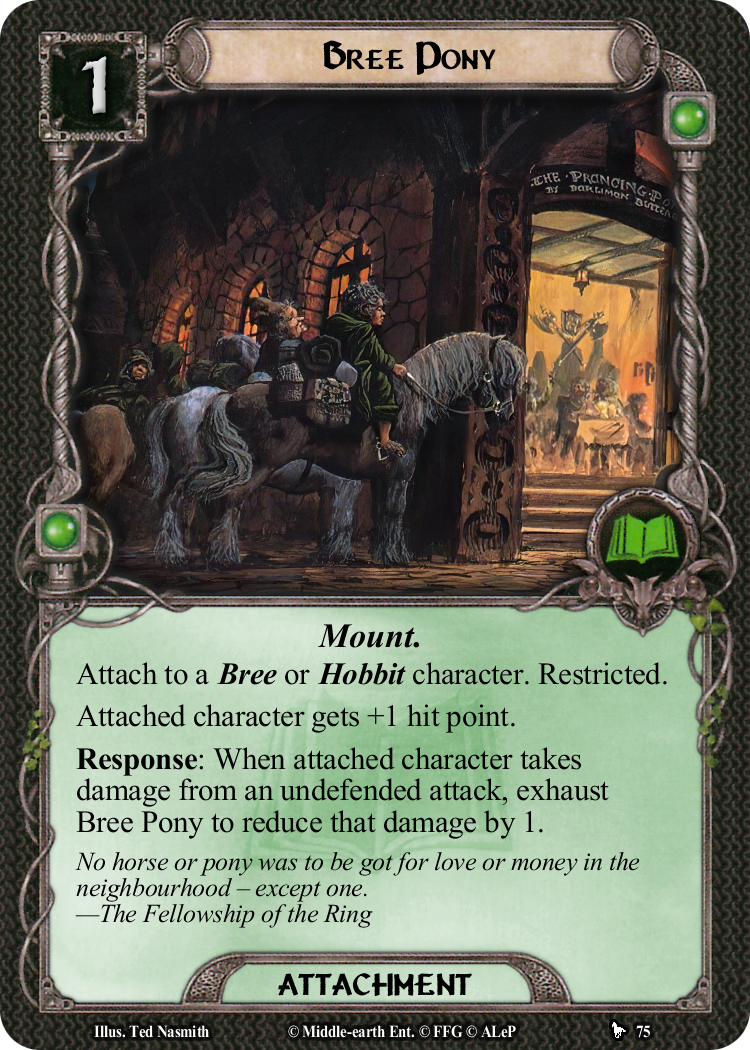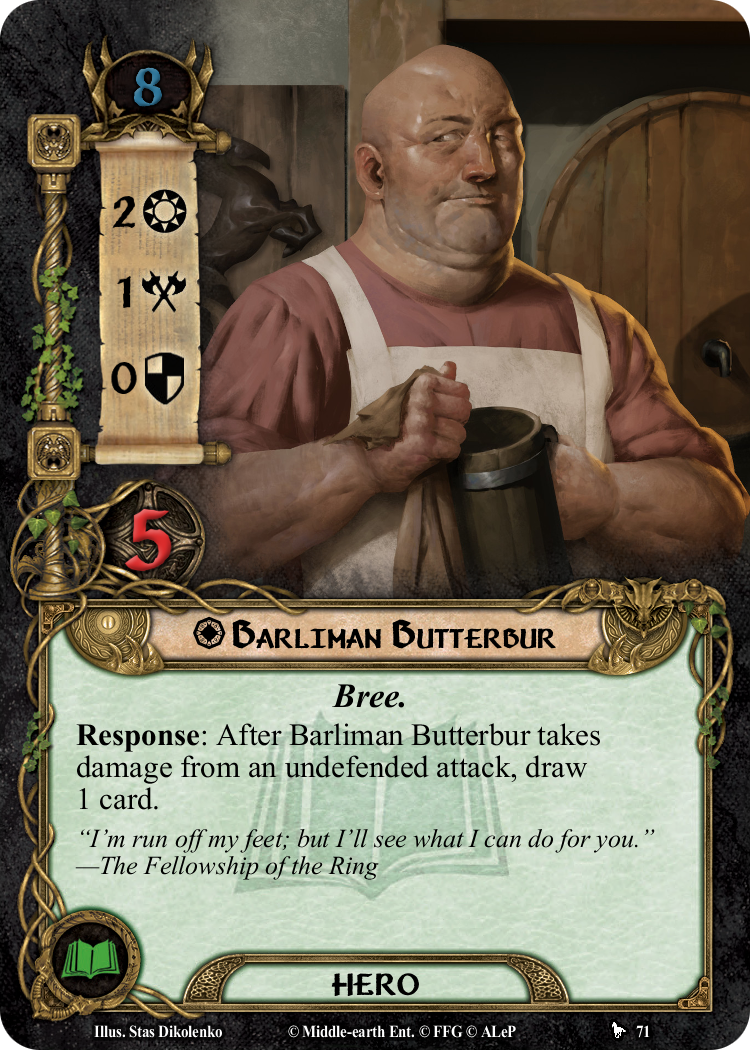This card is great for decks that have access to the Leadership sphere and can’t defend much, so that you can return the chump blockers to your hand after they are destroyed while defending. In the next planning phase you can pay for that same ally that defended so that ally can defend against the next big attack! But where this card really shines is in the Journey in the Dark scenario, where you encounter the Balrog. When you face the Balrog, your threat is most likely 40 and above, so you are able to use the Valour action to return those allies who defended back in your hand so in the next round, you can use them again. This card helps even more if your deck can’t bring in cards quickly to your hand. This card can definitely save the day in a pinch!
Not a review, but theoretical question: what happens with the guarded attachment if the active location is discarded (e.g. with Distant Stars) and not explored?
I see that it's maybe not the perfect combo anyway (since with Distant Stars you "make a location active" instead of "travelling to" and that sadly bypasses the opportunity to draw another attachment), but I'm wondering if there is any synergy.
At least when dealing just with just the core set, getting this card on Gimli along with 4 damage, gets him up to 8 attack. This also makes Quick Strike with Gimli very powerful as you can take out most enemies before they attack. While you can put more damage on Gimli with Citadel Plate, Dwarven Axe is a bit cheaper, which means you can get it out faster. And In most cases 8 attack is enough. That said, if you have the resources, you could always put both on and get him him to 12 attack to enable handling a hill troll or something similar in one hit.
A good companion to Barliman Butterbur + Pint / Half-pint (with or without Nob), or Hobbit heroes (think of Frodo Baggins). Attaching two of these on a Hobbit when you control Bill the Pony implies that Hobbit get +3 hit points.
A good and interesting hero who may be included in a thematic Alep Bree deck or a more generic deck when attaching for instance The One Ring + Well Preserved to him. That mix between the ally Barliman Butterbur, Bombur and some drawing thematic lore option, resolves the major problem of its ally-avatar (too few hit points and handy affordable healing solutions to repeat, use and abuse of the undefended attacks).
Here not only the Gap of Rohan package provides all you need to make its mechanics work (Bree Pony, Pint, Half-pint and its resources recursivity engine Seasoned Forager), but also you are not limited to Bree or Hobbit decks. It extends the deck-building for undefended attacks, in order to change from the classic Glóin + Elrond + Warden of Healing, while it underlines one of the Lore advantage (the drawing).
Among the many archetypes which could benefit from Barliman Butterbur's response, apart from Hobbits, think to Silvan decks where the Silvan characters are pretty flimsy in defense, and one needs a third hero in sphere to complete the Celeborn + Galadriel classic duo and accelerate the drawing and the deck-thinning...
Technically, always commit Barliman Butterbur in quest and let him take undefended attacks when needed. This low-threat swiss-army-knife hero is a very clever addition to that wonderful game.
